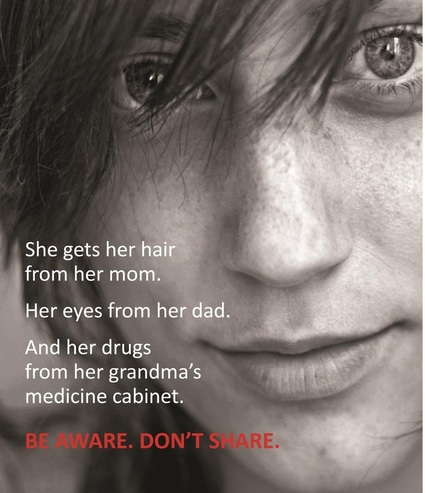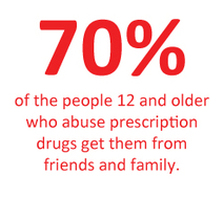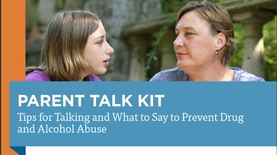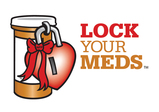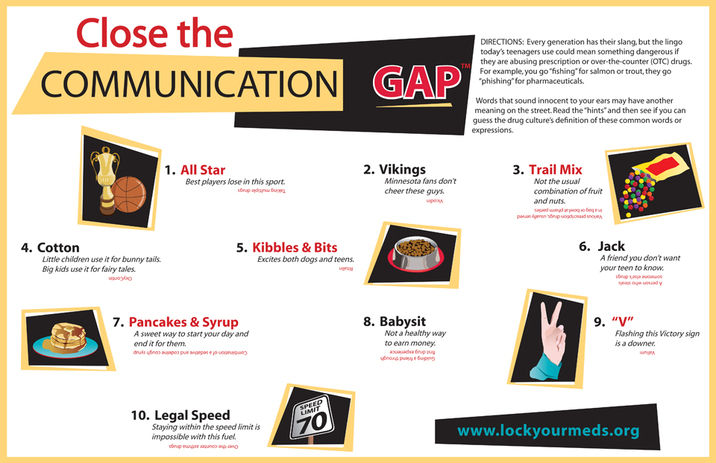Parents, Caregivers and Family Are Part of the Solution
Parents, caregivers and family members are in an influential position to immediately help reduce teen access to prescription drugs because these drugs are found in the home. But how aware are you? Think about this: would you know if some of your pills were missing? From this day forward, make sure you can honestly answer, ‘yes.’
|
Learn tips for talking with your teen/tween to prevent drug and alcohol misuse. The Parent Talk Kit includes:
Teens misuse prescription drugs because they are easily accessible and either free or inexpensive. In fact, 70% percent of kids age 12 and older who have abused pain relievers and stimulants say they got them from their friends or relatives, typically without their knowledge. Approach securing your prescriptions the same way you would other valuables in your home, like jewelry or cash. There’s no shame in helping protect those items. The same holds true for your medications.
Safely disposing of expired or unused prescription medications is a critical step in helping protect your teens. Dispose of your unused and expired prescription medications a Windham County prescription drug drop box near you. |
Know! The Signs of Prescription Drug Abuse
The number of preteens and teens abusing prescription medications has skyrocketed. Every day about 2,500 youth are trying their first painkiller (for a high). Teens report using sedatives to relax, ease stress, and aid in sleep. Misconceptions, lack of education and the stereotypical teenage "invincibility syndrome" all play a role in the number of young people abusing prescription drugs for the first time.
Parents: While it is vitally important to lock up and monitor all prescription and over-the counter medications, it is especially critical if your medicine cabinet contains stimulants, sedatives or pain medications-as these are the most common drugs teens take.
According to the National Council of Patient Information and Education (NCPIE), general physical signs of prescription drugs such as these may include:
General behavioral signs of these prescription drugs may include (as reported by NCPIE)
In protecting our children from prescription drug abuse, it is imperative to take precautions by locking up and monitoring all medications, including those sold over-the-counter. It is also essential to know the physical and behavioral red flags that signal something is wrong, and as a parent or caregiver, to then take those warning signs seriously and act on them immediately.
If you suspect your child is using prescription drugs, regardless of the reason, seek help without delay. Call 1-800-662 HELP or visit www.samsha.gov/treatment for services and treatment locations near you.
Source: Drug Free Action Alliance (DFAA) and National Council on Patient Information and Education (NCPIE)
Parents: While it is vitally important to lock up and monitor all prescription and over-the counter medications, it is especially critical if your medicine cabinet contains stimulants, sedatives or pain medications-as these are the most common drugs teens take.
According to the National Council of Patient Information and Education (NCPIE), general physical signs of prescription drugs such as these may include:
- Excessive sweating, urination, or thirst
- Nausea and vomiting
- Uncontrollable diarrhea
- Spastic shaking
- Hospitalization
- Drowsiness, dizziness and insomnia
- Loss of consciousness
- Physical dependence
- Addiction
General behavioral signs of these prescription drugs may include (as reported by NCPIE)
- Sudden mood changes including irritability, negative attitude or general change in personality
- Extreme changes in groups of friends or hangout locations
- Lying or being deceitful
- Unaccounted time away from home or school
- Avoiding eye contact
- Losing interest in personal appearance, extracurricular activities or sports
- Poor performance at school
- Borrowing money or having extra cash
In protecting our children from prescription drug abuse, it is imperative to take precautions by locking up and monitoring all medications, including those sold over-the-counter. It is also essential to know the physical and behavioral red flags that signal something is wrong, and as a parent or caregiver, to then take those warning signs seriously and act on them immediately.
If you suspect your child is using prescription drugs, regardless of the reason, seek help without delay. Call 1-800-662 HELP or visit www.samsha.gov/treatment for services and treatment locations near you.
Source: Drug Free Action Alliance (DFAA) and National Council on Patient Information and Education (NCPIE)
Close the communication gap
Every generation has their slang, but the lingo today's teenagers use could mean something dangerous if they are abusing prescription or over-the counter [OTC] drugs. For example, you go "fishing' for salmon or trout, they go "phishing" for pharmaceuticals. Words that sound innocent to your ears may have another meaning on the street. Read the "hints" and then see if you can guess the drug cultures' definition of these common words or expressions. (source Lock Your Meds)
The Prescription (Rx) drug drop boxes have been provided by the Brattleboro Area Prevention Coalition [BAPC] and theGreater Falls Connections, Deerfield Valley Community Partnership, The Collaborative and West River Valley Thrives as a prevention strategy to address concerns of prescription drug misuse in Windham County, Vermont. The boxes were purchased from The National Association of Drug Diversion Program [NADDI] using federal grant funding through the Drug-Free Communities Support Program.

